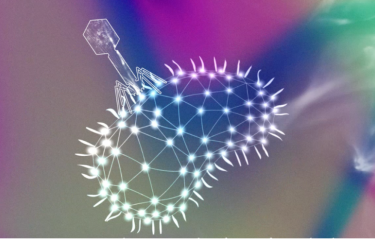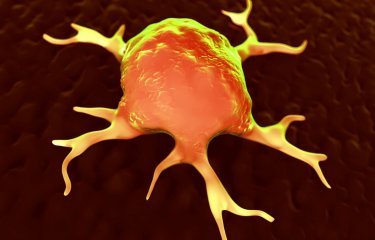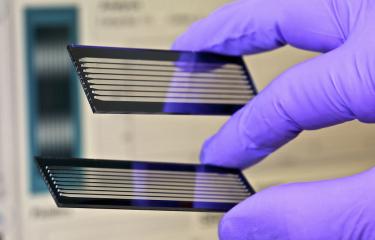In a study published in PLoS Pathogens, researchers from the Institut Pasteur, in collaboration with the Institut Armand-Frappier (Canada), identified a novel nickel transporter in the gastric bacterial pathogen, Helicobacter pylori. This transporter is essential to allow H. pylori to survive the acidity of the stomach and thus to multiply and cause pathologies.
The bacterium Helicobacter pylori colonizes the stomach of half of the world's human population. H. pylori infection is chronic and can progress from gastritis to more severe pathologies such as peptic ulcers and gastric cancer, which is responsible for nearly 700,000 annual deaths worldwide. H. pylori and gastric Helicobacter are the only microorganisms able to persistently colonize the stomach despite its acidity.
This new nickel transporter identified in H. pylori is crucial for the activity of urease, an enzyme which plays an essential role in colonization of the stomach and therefore in H. pylori's virulence. Scientists from the Helicobacter Pathogenesis Unit (Institut Pasteur) and the Institut Armand-Frappier[1] (in the framework of a transversal research project, PTR) have discovered that this novel transporter has, during evolution, been specifically acquired by gastric Helicobacter, including H. pylori. Acquiring this transporter enabled H. pylori and the other gastric Helicobacter species to become the only organisms able to colonize the hostile environment of the stomach.
Last year, these same scientists identified nickel-binding proteins unique to H. pylori that they also found to be essential for colonization of the stomach.
The acquisition of these various proteins during evolution therefore represents a key event in the emergence of one of the most successful bacterial pathogens in the world, H. pylori.
This research sheds new light on the evolution of Helicobacter and on the factors and mechanisms that enable H. pylori to persistently colonize the stomach and thus to develop gastric diseases.
[1] Member of the Institut Pasteur International Network
Sources
Characterization in Helicobacter pylori of a Nickel Transporter Essential for Colonization that was Acquired during Evolution by Gastric Helicobacter Species, PLOS Pathogens, 6 décembre 2016
Frédéric Fischer (1*), Marie Robbe-Saule (1*), Evelyne Turlin (1), Francesco Mancuso (1), Valérie Michel (1), Pierre Richaud (2), Frédéric J. Veyrier (3), Hilde De Reuse (1), Daniel Vinella (1)
(1) Institut Pasteur, Département de Microbiologie, Unité Pathogenèse de Helicobacter,
(2) CEA, DRF, BIAM SBVME and CNRS, Saint-Paul-lez-Durance, France. Aix Marseille Université, Marseille, FRANCE,
(3) INRS Institut Armand-Frappier, Bacterial Symbionts Evolution, Laval, Quebec, CANADA
(*) These authors contributed equally to this work
H. De Reuse : corresponding author
Evolution of Helicobacter: acquisition by gastric species of two Histidine-rich proteins essential for colonization, PLOS Pathogens, 7 décembre 2015 DOI 10.1371/journal.ppat.1005312.
Vinella, D*, Fischer, F*., Vorontsov, E., Gallaud, J., Malosse, C., Michel, V., Cavazza, C., Robbe-Saule, M., Richaud, P., Chamot-Rooke, J., Brochier-Armanet, C. and de Reuse, H*.
H. De Reuse : corresponding author
(*) These authors contributed equally to this work
Mis à jour le 15/12/2016





